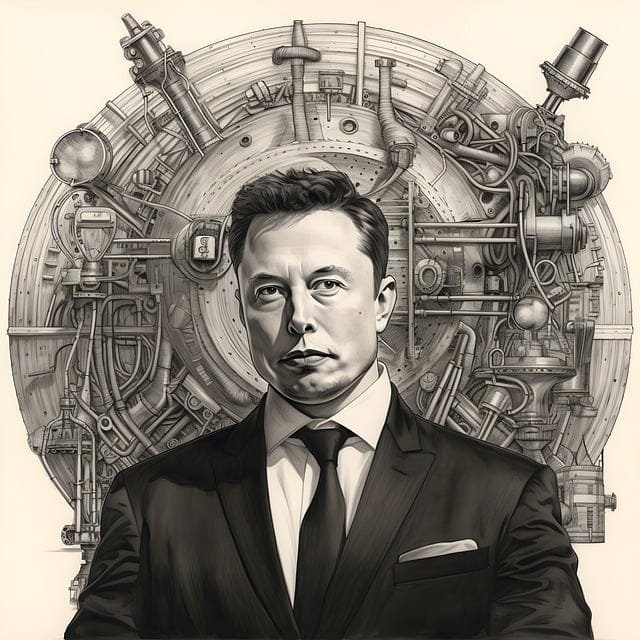Elon Musk is one of the most well-known entrepreneurs and innovators of the 21st century. He was born on June 28, 1971, in Pretoria, South Africa, to a Canadian mother and a South African father. Musk’s journey to becoming a tech billionaire is filled with ambition, risks, and groundbreaking achievements across multiple industries. Here’s an overview of his story:
Early Life and Education
Musk showed an early aptitude for technology and business. At age 12, he created and sold a video game called Blastar, which sparked his interest in programming and engineering. He moved to Canada at 17 to attend Queen’s University and later transferred to the University of Pennsylvania in the United States, where he earned degrees in economics and physics.
Initial Ventures
Musk initially started in the tech industry with Zip2, a software company he co-founded with his brother Kimbal Musk in 1996. The company provided business directories and maps for newspapers, and was eventually sold to Compaq for nearly $300 million in 1999. Musk’s share of the sale was $22 million, which he used to fund his next projects.
X.com and PayPal
In 1999, Musk founded X.com, an online payment company. X.com eventually merged with Confinity, which had created PayPal, and Musk became the CEO. Under his leadership, PayPal grew rapidly, and in 2002, eBay acquired PayPal for $1.5 billion in stock. Musk received about $165 million from the sale.
SpaceX: Revolutionizing Space Travel
In 2002, Musk founded Space Exploration Technologies Corp. (SpaceX) with the goal of reducing the cost of space travel and eventually enabling human settlement on Mars. SpaceX faced numerous setbacks in its early years, including failed rocket launches, but Musk’s persistence paid off.
In 2008, SpaceX became the first private company to send a spacecraft to the International Space Station (ISS), marking a major milestone in commercial space exploration. SpaceX has since developed reusable rockets, significantly reducing the cost of launching satellites and cargo into space. It has also been contracted by NASA and has launched numerous satellites into orbit.
Tesla: Electric Cars and Clean Energy
In 2004, Musk joined Tesla Motors, a startup focused on electric vehicles (EVs), and became its chairman. In 2008, he took over as CEO and product architect after the company struggled. Under his leadership, Tesla developed the Model S, a high-performance electric sedan, which helped establish the company as a leader in EVs.
Musk’s vision expanded beyond just electric cars. Tesla also focuses on solar energy and battery storage, with products like SolarCity (a solar energy provider) and Powerwall (a home battery system). Tesla has become the world’s most valuable automaker, and its electric cars are seen as a major driver in the transition to clean energy.
The Boring Company and Neuralink
In addition to SpaceX and Tesla, Musk has been involved in other ventures:
- The Boring Company: Founded in 2016, this company focuses on building underground tunnels for transportation, aiming to reduce traffic congestion in cities.
- Neuralink: Founded in 2016, Neuralink is working on developing brain-machine interfaces to help treat neurological diseases and, eventually, enhance human capabilities.
Twitter and the Acquisition
In 2022, Musk made headlines with his decision to purchase Twitter (now X) for $44 billion. Musk cited free speech as one of his main motivations and made significant changes to the platform, including adjusting its policies, reworking its leadership, and introducing new features. However, his acquisition and subsequent management of Twitter faced significant public and financial scrutiny.
Personal Life and Controversies
Musk’s personal life has also drawn attention. He has been married three times, twice to actress Talulah Riley, and has had several children, including twins and triplets with ex-wife Justine Musk. Musk has been involved in various public controversies, including his outspoken nature on social media, particularly Twitter, where his tweets have sometimes led to legal and regulatory challenges.
He has also faced criticism for his management style, which some describe as demanding and relentless, though his companies’ successes often speak for themselves.
Legacy and Vision
Elon Musk’s legacy is already significant, particularly in terms of innovation in electric vehicles, space exploration, and clean energy. His long-term vision revolves around the idea of reducing humanity’s dependence on fossil fuels, making space travel more accessible, and establishing a human presence on Mars.
He is known for his boldness and willingness to take on ambitious projects, even when they seem impossible. His work has made him one of the wealthiest people in the world, and he is widely regarded as a visionary who has changed multiple industries.





